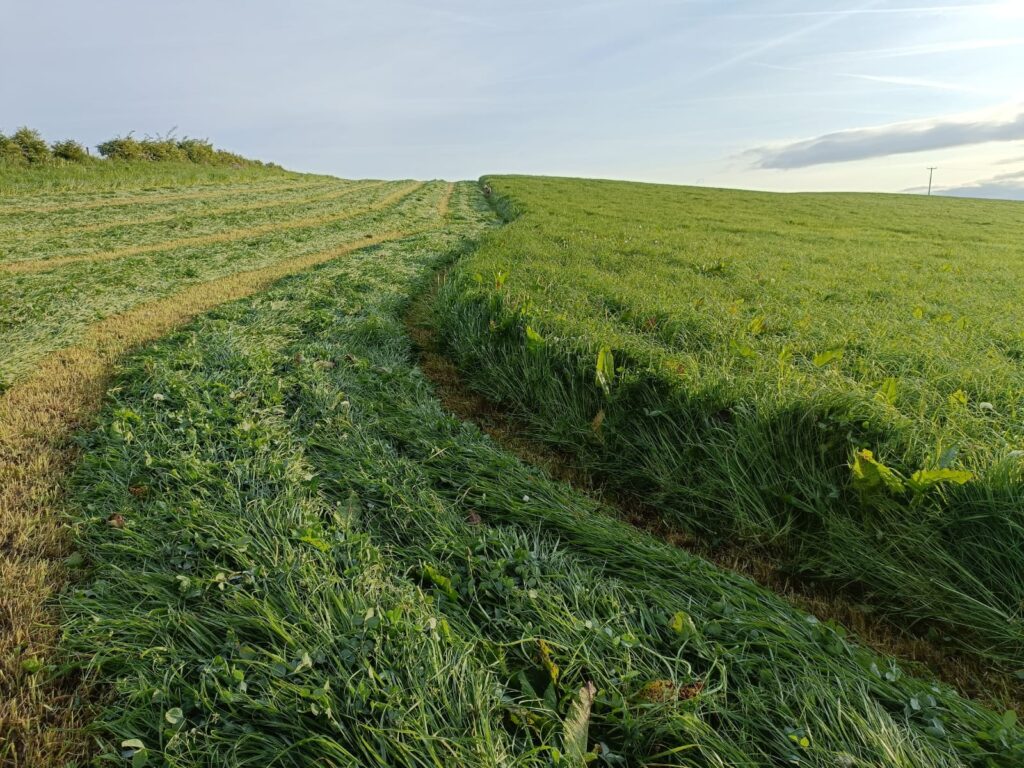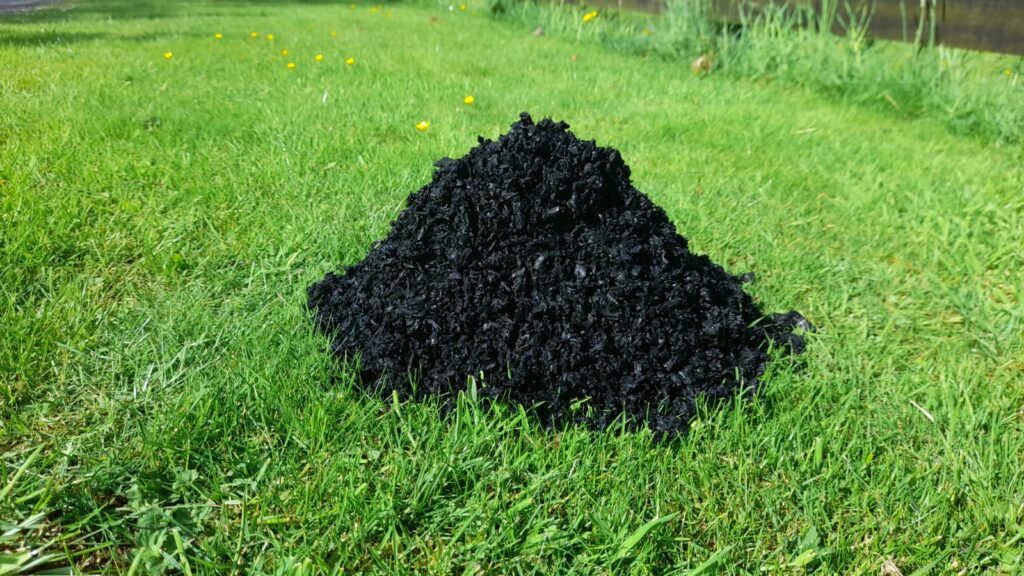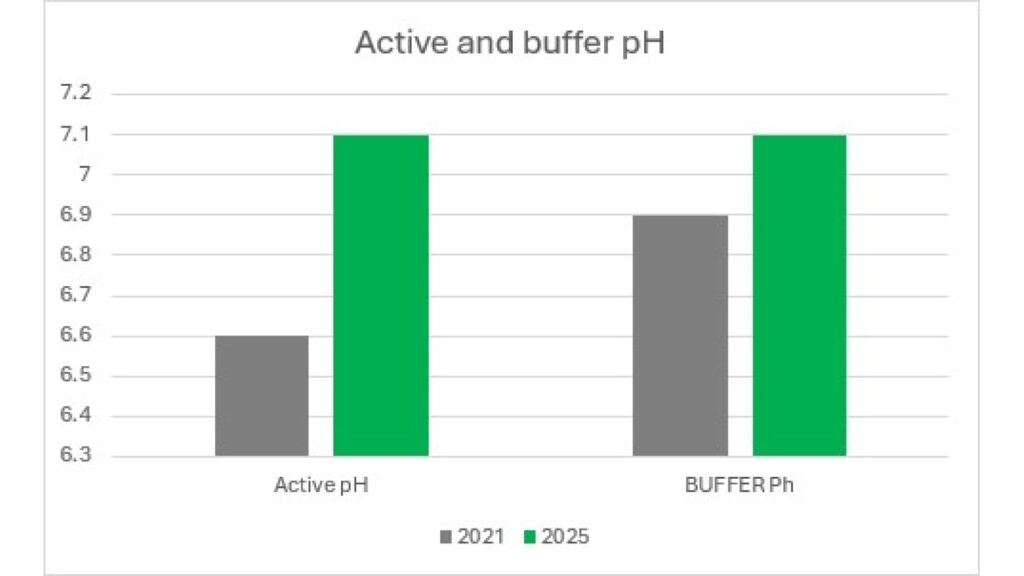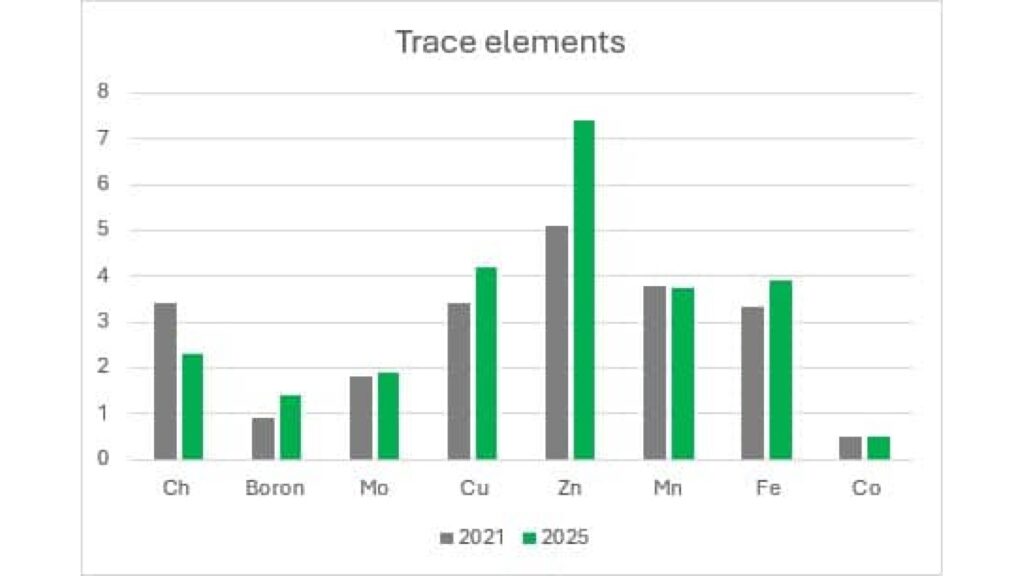Results of 4 Years of Biochar Use in Organic Regenerative Farming
By: Darren Jones, Woodtek Engineering Ltd & FM SJ Jones & Son ...
Today we’re pleased to share the results of a four-year study on the use of biochar in organic regenerative farming.
Since the first year of application, we’ve seen remarkable improvements in both the quality and resilience of our herbal leys—despite facing some of the most challenging seasons in recent memory, including the drought of 2022 and the exceptionally wet winter of 2024/25.
By incorporating biochar into our manure management strategy, we’ve witnessed a significant rebalancing of the soil microbiome, which has translated into improved crop vigour, stronger yields, and visibly healthier livestock.
We now operate:
- Without synthetic fertilisers
- Without lime or mineral soil inputs
- Without concentrate feed for our suckler herd
- And with a significant reduction in veterinary costs
It’s become a more balanced, more relaxed, and genuinely stress-free farming system—resilient and in tune with nature.
A major shift came when we began thinking differently: if you support the soil microbial community—which is fragile and easily disrupted—nature will take care of the rest. Biochar provides the tools to do this in a multifunctional way.
One of the most impactful uses is in livestock housing. When added to bedding, biochar adsorbs nearly all of the urea and ammonium produced. This prevents conversion to ammonia via the urease process, which in turn suppresses bacterial spikes that would otherwise create anaerobic conditions. Instead, bedding remains aerobic—encouraging healthy microbes and deterring pathogens. Since making this change, we’ve seen almost no cases of scour or pneumonia in youngstock.
We’re based in a known bovine TB hotspot, with neighbouring farms repeatedly going down. Yet we’ve remained TB-free. We’re starting to believe that a more biologically balanced farm system is helping to boost natural disease resistance.
From a nutrient cycling perspective, the impact has been just as striking. Biochar captures nitrogen from manure in a stable, non-leaching form, which is only released slowly by aerobic, mineral-using bacteria in the soil. This avoids the ‘nitrogen shock’ effect seen with synthetic fertilisers, and supports stronger symbiosis with clover and legumes, increasing natural nitrogen fixation throughout the growing season.
We’re now routinely taking four cuts of silage per year with only one application of biochar-enriched Farm Yard Manure annually.
Perhaps the most understated but important benefit: nutrient runoff and leaching have been virtually eliminated.
Results & Analysis – 4 Years of Biochar Application
To validate the impact of biochar in this regenerative system, the field was tested in 2021 before biochar application began, and again in 2025 using gold-standard soil analysis carried out by Farmacy Ltd (healthysoils.co.uk).
Key Findings:
- Active pH rose from 6.6 to 7.1, aligning with buffer pH, improving chemical stability and microbial activity.
“This causes less fluctuation throughout the season and provides a more stable environment for soil microorganisms, which is fantastic.” – Jade Prince, Farmacy Ltd
- TEC increased by 64% (10.79 → 17.68 meq/100g), enhancing nutrient retention.
- Organic Carbon rose from 5.28% to 7.10% (~0.48% gain/year).
- Calcium increased from 3256 to 5889 kg/ha (64.5% to 75.5% BCSR), exceeding target levels naturally.
- Magnesium decreased from 20.48% to 16.05% BCSR, improving soil structure.
- Phosphate increased from 132 to 219 kg/ha (+66%), without synthetic input.
- Boron increased from 0.9 to 1.4 mg/l (now optimal), without granular addition.
- Chlorine dropped from 34 to 23 mg/l (–32%), indicating improved drainage and lower salt stress.
“It’s clear that aside from chlorine, all trace elements have either increased or remained steady, indicating improved biological availability.”
– Jade Prince, Farmacy Ltd
Understanding the Why – The Role of Soil Biology
For Mick Jones, this trial was never just about seeing change — it was about understanding why the changes were happening.
Alongside managing the land and overseeing every part of the process — from the biochar production at Woodtek Engineering Ltd to its application on his own farm — Mick also invested in deepening his scientific understanding. He studied under Dr. Elaine Ingham’s renowned Soil Food Web Foundation Course (soilfoodweb.com), gaining critical insight into how microbial life drives soil function.
“Once I could see what was happening under the surface, I needed to understand why it was working. Studying the soil food web gave me that framework. It helped me link the biology to the outcomes — and that’s where everything clicked.”
A New Way of Thinking
The results speak for themselves — but the bigger shift is philosophical.
“We now see soil not as something to be managed—but as something to be supported. When you look after the life in the soil, everything else falls into place.”
And with biochar as a tool to build resilience from livestock bedding all the way to plant roots, this is a fully integrated, circular system — where every step, from technology to trial, is led by someone who lives and breathes it.



